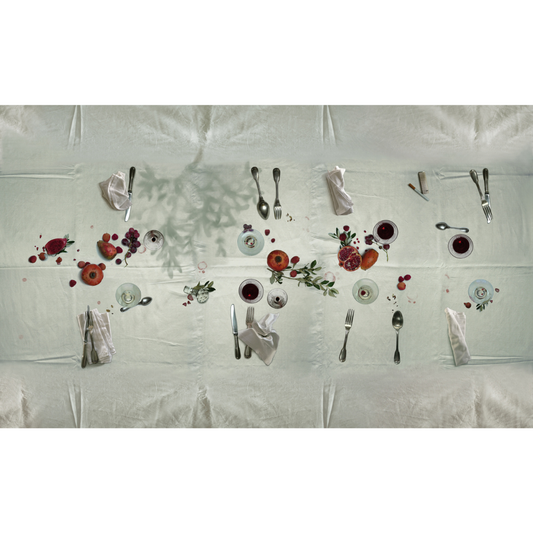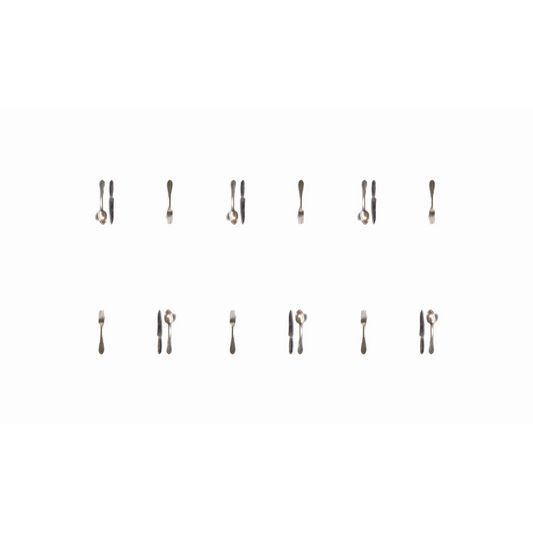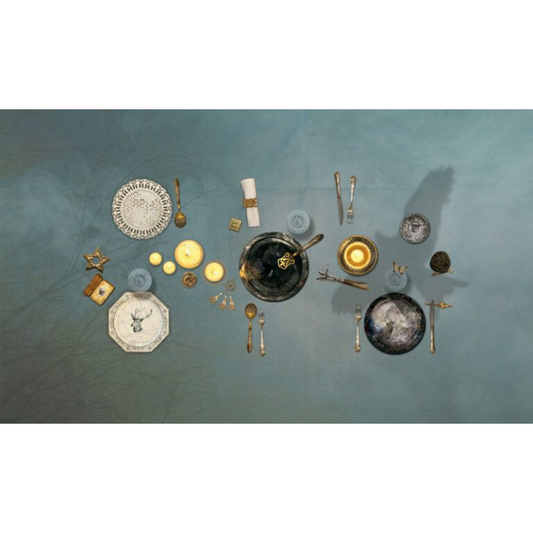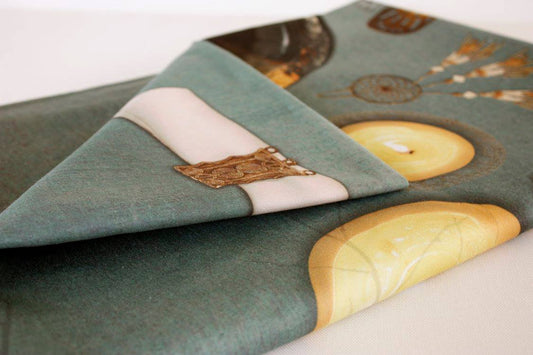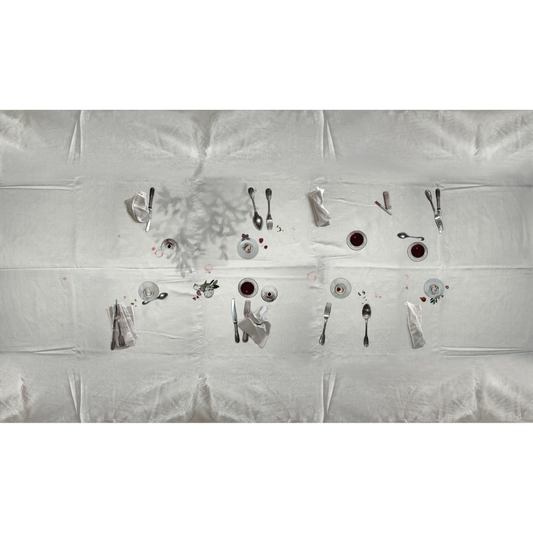OUR TABLECLOTHS
MADE AND CREATED IN FRANCE
-
THE EXOTIC
Regular price From €139,00 EURRegular priceUnit price per -
LES COUVERTS
Regular price From €139,00 EURRegular priceUnit price per -
L'ARGENTERIE
Regular price From €139,00 EURRegular priceUnit price per -
LA CONVIVIALITÉ
Regular price From €139,00 EURRegular priceUnit price per
COMMENT RECEVOIR A LA FRANÇAISE, UN SAVOIR ET UN ART.
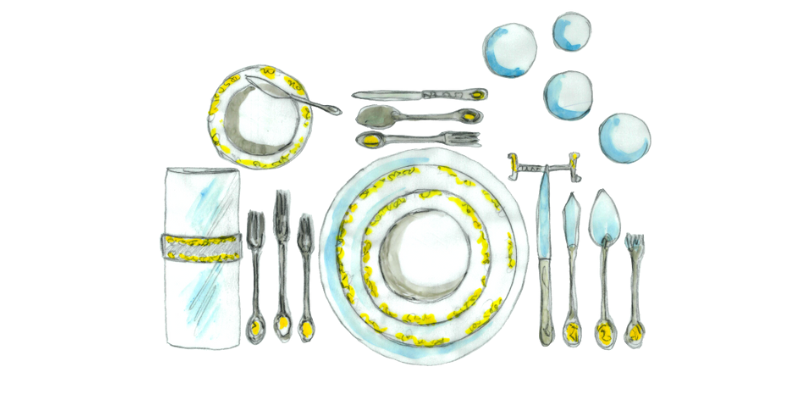
-
If today, many deals are concluded after a good meal, since Gallo-Roman times, the " cena ", or dinner, was the theater where alliances were forged, where decisions were made politics and where power was exercised. Thus, adopting a classic French layout becomes the key to creating a sophisticated ambiance.
In this tradition, attention to detail is paramount. The main plate is placed 3 cm from the edge of the table, while the bread plate finds its place at the top left of the main plate, delicately arranged.
The placement of cutlery follows a simple but elegant logic, responding to their respective use. Thus, the fork, used with the left hand, is positioned to the left of the plate, followed by the other cutlery arranged in the order of the menu.
-
The dessert cutlery finds its right position between the plate and the glasses, with their handles turned towards the hand which will grasp them, while the spoon, held in the right hand, is oriented in this direction. In France, unlike England, the forks are placed with the tines on the tablecloth and the backs of the spoons facing the ceiling, a subtle mark of sophistication.
The glasses, for their part, follow an ordered arrangement according to their decreasing size: the water glass on the left, followed by the red wine and white wine glasses. Optionally, the champagne flute is set back to the right, thus completing the table with elegance and refinement.
By following these subtle and refined rules of the French art of entertaining, you will create an atmosphere that celebrates not only your food and wine, but also know-how and the art of living.

"Convier quelqu’un c’est se charger de son bonheur pendant tout le temps qu’il est sous votre toît." Brillat-Savarin, A. (1825). Physiologie du goût. Paris: Sautelet et Cie.

"La table était servie avec une recherche extraordinaire. Il y avait des fleurs partout, dans les assiettes, sur les verres, et même sur les nappes. Les plats étaient fins et délicats, les vins rares et précieux. Tout respirait l'opulence et le bon goût."
De Gustave Flaubert / Madame Bovary.

“ Un poème jamais ne valut un dîner. " Berchoux, J. (1805). Gastronomie.

